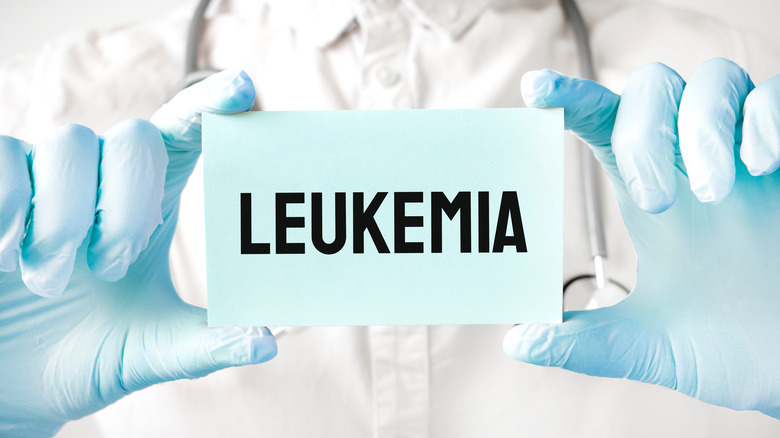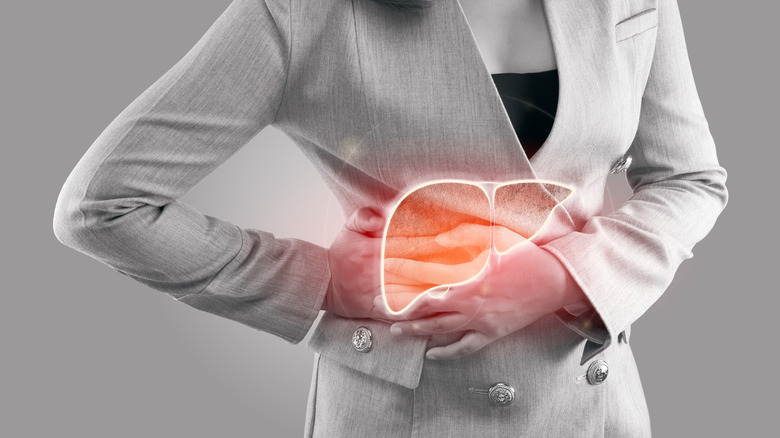It Could Be A Warning Sign Of Leukemia If Your Liver Looks Like This
Leukemia symptoms can be vague and hard to recognize, as they tend to resemble symptoms of common illnesses like the flu (via the Mayo Clinic). This can make a diagnosis easy to overlook at times. However, one key sign of leukemia has to do with the liver, and it's something that shouldn't be ignored.
Leukemia, which is cancer of the tissues that form blood, usually involves the infection-fighting white blood cells (via the Mayo Clinic). Instead of growing and multiplying in an organized way, white blood cells in people with leukemia grow excessively and become abnormal. This causes the healthy cells to be crowded out of the bone marrow, leading to fewer healthy white blood cells, red blood cells, and platelets.
There are 4 main types of leukemia: acute lymphocytic leukemia, chronic lymphocytic leukemia, acute myelogenous leukemia, and chronic myelogenous leukemia. Some are more likely in children while others are more likely in adults. Nearly 400,000 Americans are living with or in remission from leukemia, and from 2013-2017, it was the sixth most common cause of cancer deaths in males and the seventh most common cause of cancer deaths in females (via the Leukemia and Lymphoma Society).
Why an enlarged liver could mean leukemia
In acute lymphocytic leukemia (ALL), symptoms stem from a lack of normal white blood cells and can include feeling tired, weak, or dizzy, shortness of breath, pale skin, persistent infections, bruising, and irregular bleeding, such as frequent nosebleeds, bleeding gums, or heavy menstrual flow (via the American Cancer Society). These can also be accompanied by weight loss, fever, night sweats, and loss of appetite.
Another indicator of this type of leukemia is the enlargement of the liver. When leukemia cells build up in the body, they can concentrate in the liver and spleen. Typically, the lower ribs cover these organs, but when abnormal blood cells accumulate here, they are often so large that they can be felt. The belly can feel bloated or distended, and you might feel full after eating a small amount. This buildup can also happen in lymph nodes and joints. If you're experiencing any of these symptoms, contact your medical provider to test for leukemia right away.

